By Jenny Zhao
Central has a lot of pigeons, or as I call them, flying rats. These filthy creatures not only drop their faeces everywhere on the street, but also walk around on Jubilee and Douglas looking like they own the place.
I usually curse if one takes off next to me, but that day as I heard the sound of sudden flapping by my side, my heart jumped and I shouted: “Phew! Thank God it’s you!”
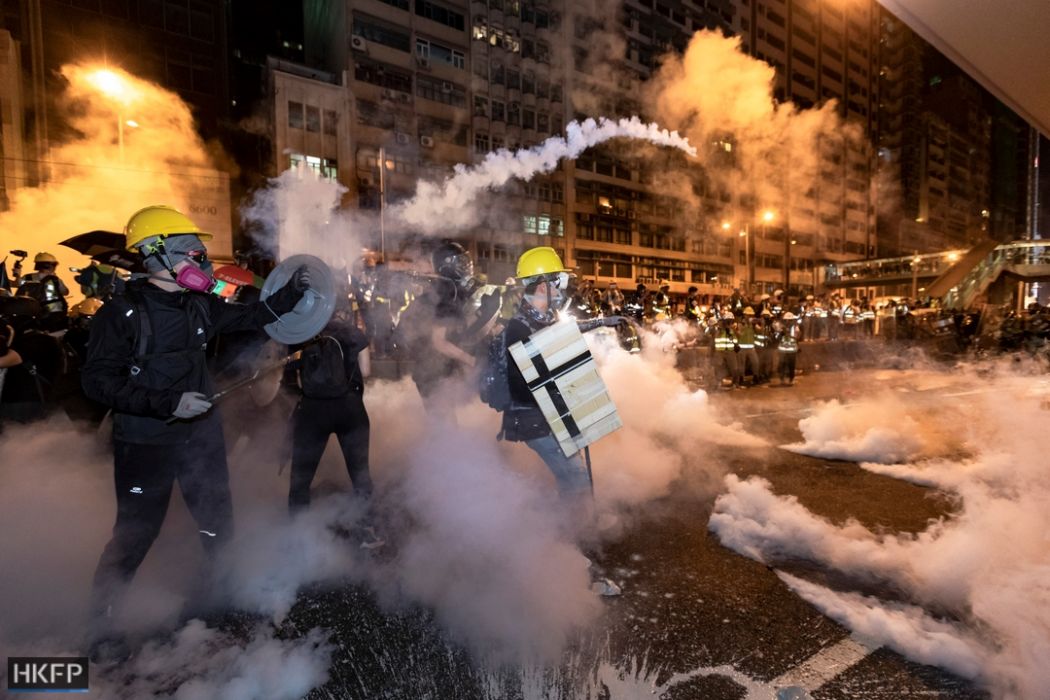
I was trying to make my way to the Central MTR station at 12:30pm on a Tuesday last November. I needed to go home, eat, pump breastmilk for my baby and go back to the office. That was my lunchtime routine and I was practically power-walking.
A mere block away other office workers in Central were spending their lunch hour in a completely different way: protesting. A young protester had died a week ago in an accident that many blamed on the police.
Now tension was high and the police had just raised the black warning flag on Pedder Street, my husband texted me. “Don’t go back after lunch,” he said.
“But I didn’t bring my computer. I can’t just take half a day off.”
Then we got into an argument, with him worried about me getting hurt on the way back and me annoyed that he thinks I am incapable of handling a bit of road disruption. “I have to put myself in these dangerous situations because of my job [he is a journalist], it angers me that your company will expose you to those same risks just because of half a day’s work.”

In the end, the fear of letting teargas pollute my milk stopped me from going back after lunch, and I asked my husband to go to the office and pick up my work laptop for me. Later that day my company sent out an email to all employees in Hong Kong urging them to leave early and stay safe.
Most of my colleagues didn’t go. Many thought the protest would die down as night fell, and some were genuinely unimpressed after witnessing months of chaos. A few colleagues visiting from the Japan and China offices went downstairs to watch in great excitement and one came back commenting that it was “fascinating” (真神奇).
The anger
Rewind five months. Hong Kong was soaked in the summer heat and blood-boiling passion against a proposed law that would have allowed criminal suspects to be extradited from Hong Kong to mainland China for trial. The complete distrust in the justice system in China united hundreds of thousands of people in a city that had been protest-quiet for four years.
When seas of people, of all ages and all walks of life, came out in their usual carnival-like manner walking through a good part of Hong Kong Island to voice their objection to this bill and the government still announced it would continue pushing it, things went downhill very quickly.
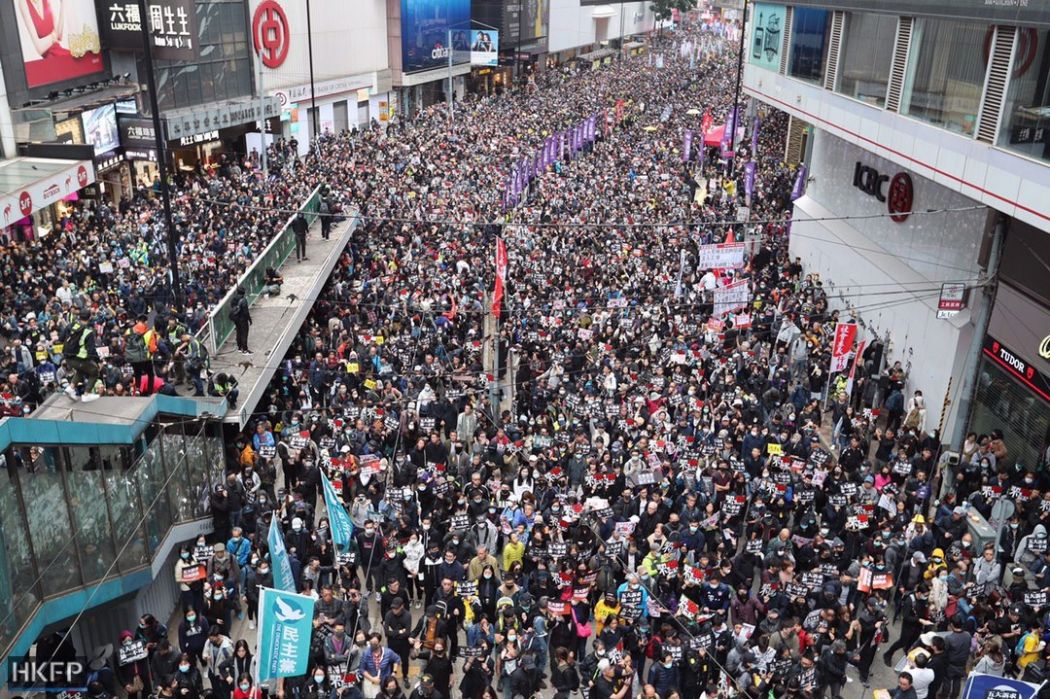
While many in the city were furious with the government for ignoring people’s will and suppressing their voices with police crackdowns, I was furious with the government for an entirely different reason. I had just given birth and discovered that breastfeeding hurt like hell.
For nine months, I closely followed all the advice given by the government healthcare system on pregnancy and childbirth, including giving birth without epidural, which I did without complaining. It didn’t take a lot of convincing for me to agree to the hospital’s advice to breastfeed my baby.
However, I wasn’t prepared for the pain that came with breastfeeding because no one told me it would hurt. In a state of deep shock, I broke down in tears about five times a day. Skin was peeling off my nipples, which had become hardened and cracked with ridges.
Any contact with any kind of fabric sent excruciating pain to my heart. Whenever my baby was latched onto me, my whole body tensed up as I stared into his moving cheeks in disbelief of the pain. At the hospital, nurses told me if it hurt, I was doing it wrong.
My mum who had come from the mainland to take care of me, constantly urged me to feed the baby and stop that ridiculous pumping thing, which involved a lot of putting together and taking apart the pumps, washing and sterilizing.

She was also unhappy that the baby was taking milk powder some of the time, although for her the main appeal of breastmilk was that it is free. My mother gave birth to and raised three children with much less material comfort so it was unbelievable for her that I couldn’t handle breastfeeding one baby.
Perhaps she had forgotten that breastfeeding was painful especially in the first month. Maybe she had to deal with so many other pains when she grew up in the 1960s to 1980s in China that this particular pain didn’t leave much impression. In any case, the question of whether breastfeeding is supposed to be painful became one of the most tension-provoking topics between us.
My husband did the thing that any wise man would do in the situation: Google. He found a blog written by a mother who compared breastfeeding to putting her nipples into a pencil sharpener.
After talking to my dad, my aunt and a bunch of other relatives, my mum told me one day that my sister’s mother-in-law said that breastfeeding hurt a lot for her, “like flowers blossoming on her nipples” (痛到开花). Winning that argument did not make me happy as I still had to fight my mum on every other thing from what to eat, what to wear, how to shower to whether I can wash my hair.
I was annoyed with her for making me follow all these strange traditions that made no sense to me, and she was annoyed with me for not being obedient and about a thousand other things including that me and my husband are not frugal enough.
Once I was about to throw away some leftover powder milk and she said I should not waste it. I said I did not have any other use for it, and she took the bottle from me, swirled it a bit and downed the milk like a shot of vodka.
An outsider
When I wasn’t busy fighting my mum, I watched news about the ever-growing protest movement in Hong Kong. It was unbelievably moving for me to see all those people coming out again and again, fighting for something they believed in.
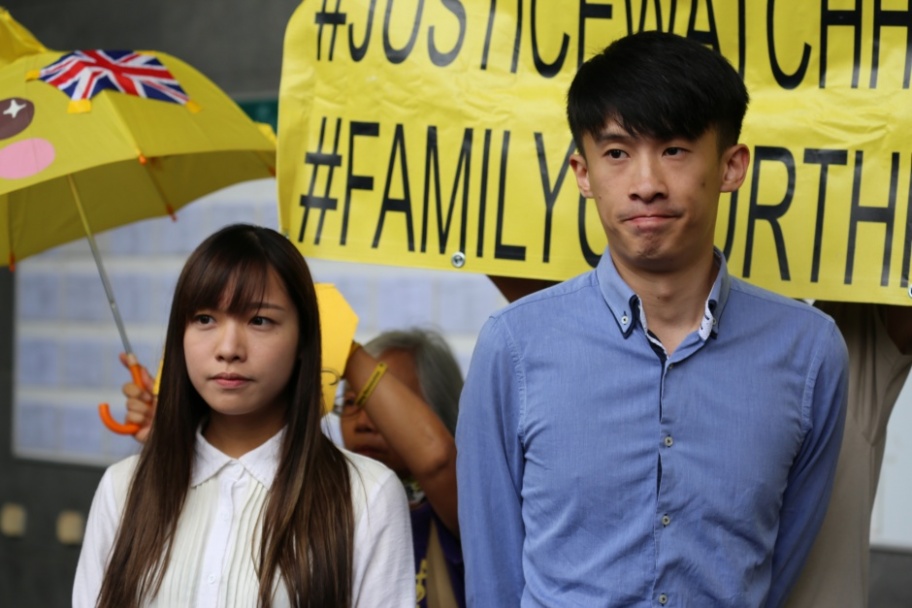
For four years I had watched the city concede step by step after the 2014 Umbrella Movement. Elected legislators unseated, no response; pro-democracy leaders jailed, no response; mainland officers enforcing law in the heart of Kowloon through a train station, nothing.
Seeing that a proposed extradition bill had drawn hundreds of thousands in the street, I thought, finally, Hong Kong, let’s fight back! I wholeheartedly agreed with the protesters’ concerns and felt bad about I was stuck at home and wasn’t able to join the protests myself.
However, soon I was reminded that this isn’t my fight. Like the Japanese-Hawaiian girl in Ali Wong’s book who asked what she could do to help the indigenous rights movement only to be told to get out of Hawaii, I soon discovered that the people of Hong Kong did not need me and did not want my opinion.
In fact, some of them don’t think I am capable of comprehending the situation. Most of my local friends had no interest in talking to me about the protests as they seemed to assume I would take the government’s side. One acquaintance asked, “what was going on in your mind when you saw two million people on TV? It must have been shocking for a mainlander like you to see people criticising the government like that.”

Yup this brainwashed mainland girl hadn’t seen anything like a protest her whole life so that it was completely eye-opening, inspirational and educational for her. Thanks a bunch for enlightening me, Hong Kong.
My mainlander friends who also live in Hong Kong were generally supportive of the protesters’ demand at the beginning as well; they were quickly turned off after incidents of Mandarin-speaking people being heckled, smacked, tied up and beaten up when they happened to be in the middle of a Hong Kong protest.
Some of them were journalists. I picture a journalist from mainland China who received the task to come to Hong Kong to report on the protests. He/she was clearly instructed to collect black material on the “rioters”.
However, as a journalist and an inevitably liberal-leaning person, this task made them uneasy and they actually wanted to find out for themselves what this movement was all about. But as soon as they opened their mouth and spoke Mandarin, they were told off and chased away.

From then on, no secret fact-finding, soul-searching was necessary. They would simply do what they were sent here to do and go home.
Disappointing diversion
And then there was the whole police saga. It is very sad that only weeks into the anti-extradition movement, the issue of alleged police brutality took centre stage. And seven months on, anti-police sentiment is still the loudest element in the protesters’ so-called “five demands.”
I get it, some police officers did some really nasty stuff. People were hurt. But can we focus here? Your enemy is not the police and your goal shouldn’t be to disband the police. Most police officers are only doing their job, a job that they were not sufficiently trained for and had no idea they would need to do ten plus hours a day, day after day after day.
In any large organization, there will inevitably be some really sick people, but it doesn’t change the fact that police officers are victims too, and more importantly, they are Hongkongers too. I thought it was incredibly dumb when protesters hold their arms straight up with their palms open to express “five demands”. I guess nobody told them they look like they’re doing the Nazis salute?

What about the one demand that was met? Shouldn’t it be Four Demands now? And how many could remember all of the five demands? More importantly, who would care when your message is so long? You have the whole world’s attention and you say FIVE demands? Imagine if NIKE’s slogan was:
Exercise more; Get up early; Be healthy; Move move move; Just do it.
Or if McDonald’s slogan were to change to:
Our burgers are good; Fries are OK too; Our fried chickens are actually not worse than KFC’s; Try our sundae; I’m lovin’ it.
Unsurprisingly, in private, the people who point out that Hong Kong police are actually not that bad considering the chaos tend to come from a democratic country. “Oh if this was in the United States it would have been way worse,” an American friend said. “The protesters do everything to provoke the police,” a French colleague said.
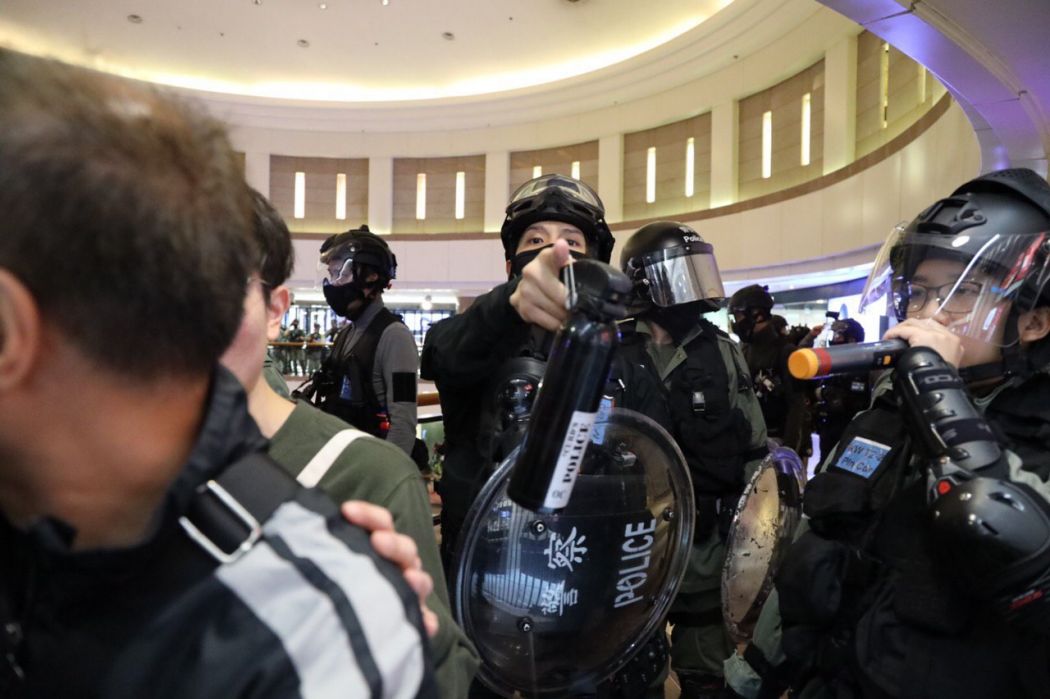
Yes, bad things happen in mass movements in democratic countries too. Groups like Demosisto calls for the Hong Kong Police Force to be characterised as a “terrorist” organization. Seriously? Can you be any more melodramatic?
Punishing and disbanding the police isn’t going to win you democracy, but fighting for democracy and an elected government will give you the power to stop misconduct by police and other parties.
Close encounter
The whole police debate and the “us versus them” atmosphere created by it made it very easy for my family and friends back home to ignore everything else about the Hong Kong movement and dismiss it as a US-led attempt to stir up trouble in China, which was readily aided by the ever ungrateful and naïve Hongkongers.
When my mum was in Hong Kong in June and July, it was still possible for me to explain the nuances to her even though her biggest question was always “Why don’t those people need to go home and eat?” or “Don’t they need to go to work?”
However after she went back to the mainland, she was convinced that protesters were paid because the universally accepted logic is that no sensible grown-up person would do something like this unless there is huge economic return in it for them.
I thought that being the only person back home who has actually seen uncensored news about the Hong Kong protests would make my mum think twice before believing things like “so many people in Hong Kong were killed in a riot over the weekend that the government has cancelled one country two systems.” “From now on the PLA will take control and Hong Kong will use the RMB.” The rumours relayed by her kept getting crazier and I just stopped responding.
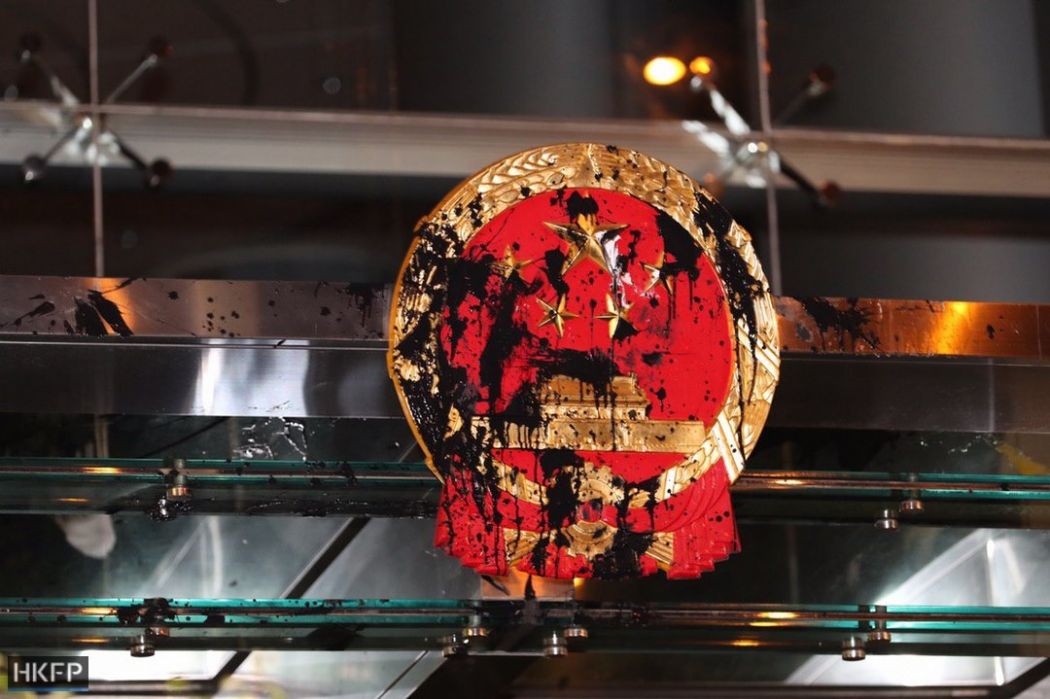
As the protests and police crackdowns became more and more violent, my siblings and some of my friends back home started to feel sorry for me and worried about my personal safety. It seems some were waiting to hear crazy stories as if I was living in the middle of the Iraq war.
I honestly don’t have any crazy stories to tell, I said. In fact, up until November, I must have been one of a handful of people in Hong Kong who had not witnessed any of the protests in person. For a long time life in Hong Kong for me was so different from what I see on TV that I wondered if I was in some kind of 1Q84 situation.
Because I kept missing the action, I later put on a new funny attitude whenever someone outside of Hong Kong asked me about what it is like to live “in the war zone”. “Life is very normal here. Come see it for yourselves, it’s actually better than before. Hotels only cost $200 a night these days. Come visit, I will pay for your hotel!” Nobody took my offer.
No matter how much I tried to distance myself from the protests though, as it grew harder and harder for me to relate, I couldn’t look away. My husband lived in the middle of it every day. At the beginning, we felt very positive about him covering one of the most important international stories of the year and recording history first-hand.
We never really thought about how long it would last, but when things showed no sign of let-up after three months, then four, then five… we were increasingly drowned in exhaustion, resentment, loneliness and depression. For a while, it felt like we lost touch entirely and lived like two strangers under the same roof. We barely talked and when we did, it often turned into arguments.
I went livid when he used the word “bored” to describe me staying at home. “I guess compared with your incredibly important job, my pumping every four to five hours, constant washing, cleaning, sterilizing, heating up the milk, feeding him and changing diapers must be so pointless to you… Where the hell were you when I had to choose between starvation plus an exploded bladder and leaving the baby crying till he loses his voice?”
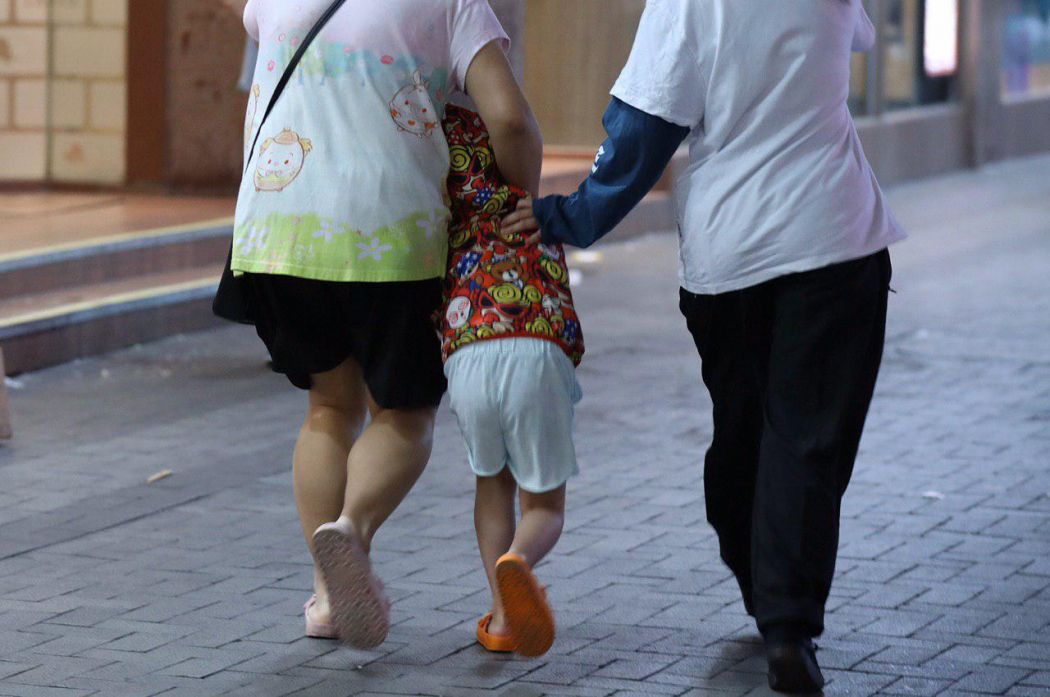
For him, it felt extremely lonely to deal with the physical and mental drain that is covering the protests while all I seemed to care about was quarantining his clothes and other belongings so the residuals of teargas wouldn’t get to the baby. “I have just been working for two weeks non-stop and you don’t even ask if I had eaten. I feel like I could just drop dead one day and nobody will notice.”
Then on 17th of November, he got called back on a day-off to reinforce his colleagues who were covering the rapidly worsening police-protester standoff at Polytechnic University. I watched live as a bridge near the university went up in flames and later police closed off the entire campus and area around it, warning everyone to leave or face dire consequences.
That day I read a local news story that said a group of hardcore protesters planned to murder police officers before the 24 November district council elections. Apparently enough people are facing up to 10 years in jail for rioting that they just don’t care if they also murder.
That’s how terrorists are born, I thought to myself. By then I had also read enough analysis about similarities between Northern Ireland and Hong Kong, so when I saw news about large amounts of chemicals being stolen at PolyU, I panicked and begged my husband to come home before someone pulled off some kind of suicide bombing.

He wasn’t able to. He was trapped there. I ended up crying quietly and violently in my room.
In my hysteria, I built up an intense hatred towards Hong Kong’s leader Carrie Lam. “Where the fuck are you? You think you can just sit back and relax when the city falls apart while you still get paid HK$4 million a year? Seriously Carrie, I will do your job, for half the money. I will go to PolyU now and try to defuse the tension, even if it doesn’t work. If you can’t do your fucking job, move your fucking ass and let someone else do it.” I ranted all this to my friends like an angry and scared child.
My husband came home three days later on 20th November. The night before that I went to a hotel in Wan Chai to meet him and bring him clean clothes. As we walked to a restaurant to get some food, I saw three bruises on his neck and arm. He said he had been hit by two rubber bullets, one of them bouncing off his shoulder to hit his neck.
The bruises will go away, he said. It was our anniversary. And that was the closest encounter I had with the Hong Kong protests.
Jenny Zhao is a mainland Chinese resident of Hong Kong, who was granted a pseudonym owing to the sensitive nature of her job.
